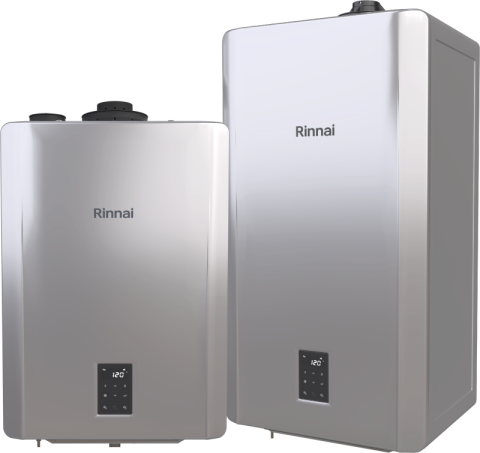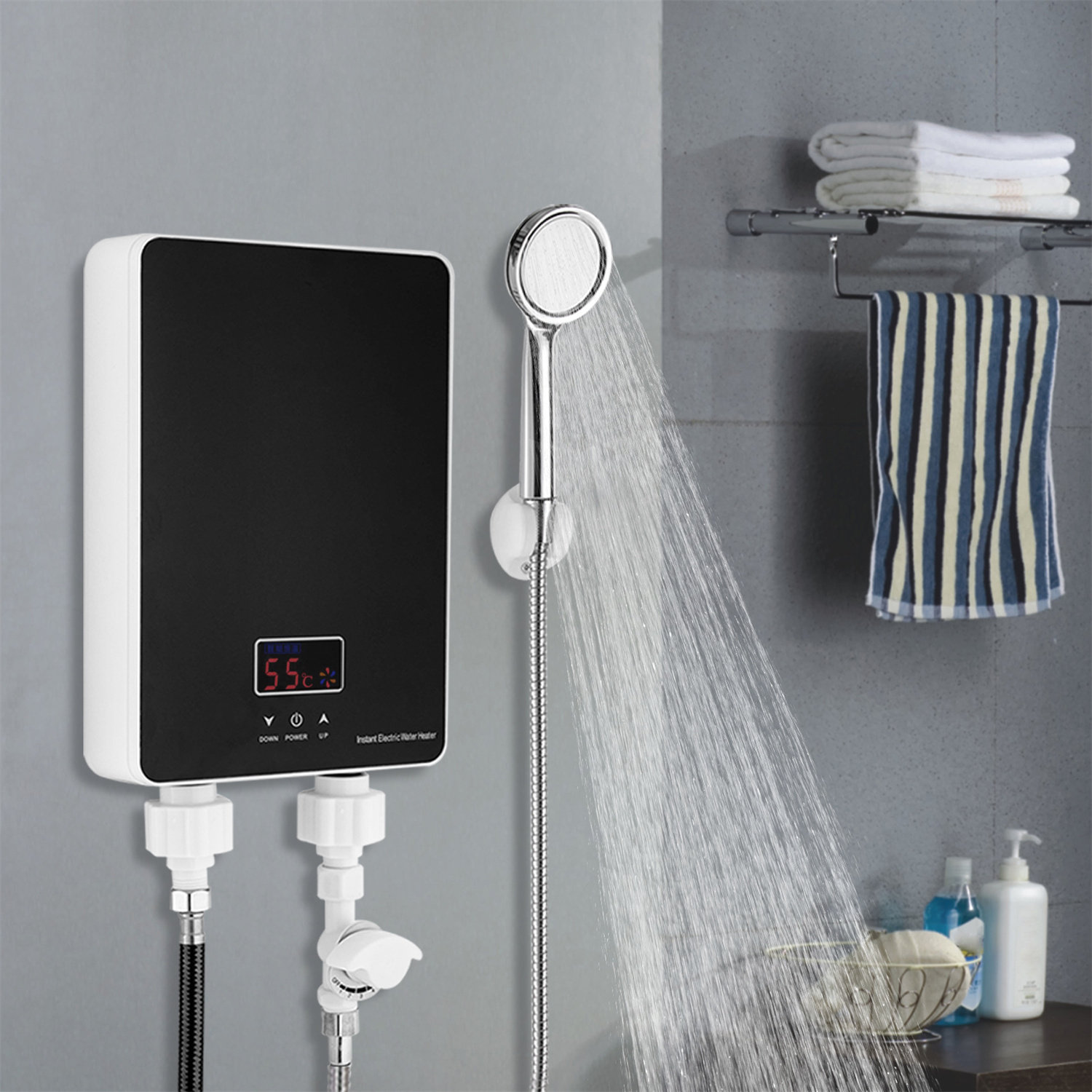They are making several good pointers about Pros and Cons of Tankless Water Heater overall in this content further down.

In a world where ease and effectiveness reign supreme, it's not a surprise that homeowners are regularly in search of smarter methods to handle their home's energy intake and comfort. One technology that has actually gradually obtained appeal is the tankless hot water heater. But what exactly makes these systems stand out from the standard tank-based models most of us matured with? Let's dive in and explore the benefits of tankless hot water heater, aiding you determine if it's time to make the button in your house.
Intro
Picture this: you enter the shower after a long day, anticipating a relaxing waterfall of warm water, just to be welcomed by icy droplets due to the fact that the last person used it all up. Noise acquainted? Traditional water heaters save a set amount of warm water, meaning you're at the grace of that container's supply. Tankless systems, on the other hand, warmth water on demand. Say goodbye to going out mid-shower, say goodbye to fumbling with timetables just to guarantee warm water is available.
Understanding Tankless Water Heaters
What Are Tankless Hot Water Heater?
Tankless hot water heater, often referred to as on-demand or immediate water heaters, supply hot water just as it's needed. As opposed to storing gallons of pre-heated water, these units kick into activity the moment you turn on the tap. Water travels through a warmth exchanger, heating up in real-time, meaning you obtain an undisturbed flow of warm water without the need for a huge storage tank sitting lazily by.
Exactly how Do They Vary from Conventional Equipments?
Conventional heaters hold a storage tank of hot water, utilizing power to keep that storage tank at a constant temperature level. Tankless systems get rid of the standing supply, minimizing wasted energy and the large impact of a big cyndrical tube. Basically, you're upgrading from a "stockpile" frame of mind to a "made-to-order" approach.
Common Types of Tankless Systems
Tankless hot water heater normally are available in 2 ranges: gas and electrical. Gas designs have a tendency to provide greater circulation rates, ideal for larger houses, while electrical models frequently serve smaller sized homes and are commonly easier to install. Furthermore, some systems are designed for point-of-use (offering one fixture) while others can handle the whole home's hot water demands.
Trick Advantages of Tankless Hot Water Heater
Energy Performance and Cost Savings
No more heating a titan container's well worth of water and maintaining it warm throughout the day. Tankless heaters reduce standby power losses, which can decrease energy expenses. While the preliminary cost could be higher, the lasting financial savings frequently justify the financial investment.
3. Space-Saving Style
If your home is short on storage, getting rid of the cumbersome tank liberates valuable area. Tankless units are small and can usually be mounted on wall surfaces, tucked away in edges, or set up in tight energy closets without grabbing all of the entire room.
4. Longer Life-span
A well-kept tankless water heater can outlast its tank-based relative. Standard storage tanks might last 10-15 years, while tankless designs can maintain chugging along for twenty years or more, making them a strong financial investment over time.
1. Endless Hot Water Supply
Ever before had to schedule showers so everybody obtains their reasonable share of hot water? With tankless, that comes to be a thing of the past. As long as the heating unit's flow ability isn't surpassed, you can take back-to-back showers without turning into a popsicle.
5. Improved Water High Quality
Saving water in a container can in some cases cause debris build-up or a slightly "off" taste. With tankless systems, fresh water is heated up instantly, lowering the chances of sediment accumulation and potentially using cleaner-tasting water.
Considerations Before Switching
Though the advantages are compelling, it's a good idea to think about a couple of aspects prior to fully devoting.
Reviewing Your Home's Water Usage Patterns
If your home at the same time makes use of several fixtures with high warm water demand, see to it the device's flow price fulfills your requirements. Knowing your use patterns aids you pick the right size and sort of tankless heating unit.
Upkeep and Treatment Tips
Tankless systems are relatively reduced upkeep, but they aren't set-it-and-forget-it home appliances.
Regular Cleaning and Descaling
Hard water minerals can accumulate in the warm exchanger, affecting effectiveness. Normal descaling (typically suggested annually) keeps the unit going for peak performance.
Yearly Expert Assessments
A yearly checkup from an expert makes sure minor issues are captured early. They'll evaluate the unit's efficiency, search for leaks, and assist maintain optimum performance.
First Investment Prices
Tankless heating systems typically feature a greater in advance cost. Between the system itself and potential installment adjustments, the preliminary cost could give you sticker shock. However keep in mind to view it as a long-lasting investment.
Setup Demands
Depending upon your home's infrastructure, you may require extra electric capacity or gas line upgrades. Ensure you comprehend the installment needs and consult with a professional to avoid surprises.
Making Sure Appropriate Ventilation
For gas designs, appropriate air flow is essential to safely get rid of exhaust gases. See to it airing vent systems are clean and correctly set up to avoid any type of prospective security dangers.
Contrasting Different Brands and Models
Not all tankless hot water heater are created equal.
Investigating Trusted Makers
Try to find reputable brand names with a background of generating high quality systems. A dependable manufacturer frequently provides better customer support and longer service warranties.
Installment: Do It Yourself or Expert?
While some house owners cherish tackling tasks themselves, tankless installment may not be the most effective time to break out the toolbox.
Pros and Cons of Do It Yourself Setup
A do it yourself set up might save cash, but it comes with risks. Inaccurate installment can bring about ineffectiveness or safety issues. If you're handy and have experience, it may be possible-- however wage caution.
Reading Reviews and Customer Responses
Individual evaluations and responses from neighbors or pals who have gone tankless can offer valuable understandings. Sometimes, real-life experiences can be more informing than advertising brochures.
When to Call a Specialist Plumbing Professional
For the majority of, calling a pro makes sure every little thing's done properly. A professional plumbing professional recognizes local codes, sizing needs, and venting criteria, minimizing the threat of incidents.
Optimizing Effectiveness
You have actually purchased a tankless system-- currently optimize its performance.
Ideal Temperature Level Settings
Most people establish their systems between 120-140 F. Adjusting the temperature can boost convenience and financial savings. Experiment to locate a sweet spot that doesn't throw away energy.
Coupling With Low-Flow Fixtures
Want to extend your unit's abilities? Consider installing low-flow showerheads and taps. They decrease water use, enabling your tankless system to provide a consistent stream of warm water without stressing.
Ecological Effect
Tankless hot water heater line up with greener living goals.
Decreased Carbon Impact
By utilizing less energy and only home heating water as needed, tankless systems can reduce your home's carbon impact, minimizing your ecological influence.
Conserving Natural Resources
Less power intake and much less lost hot water translate into fewer natural resources being made use of, an environmental win-win.
That Profits Many from Tankless Heaters?
The charm of tankless heating systems is that they can suit a range of houses.
Large Families vs. Single Occupants
Big family members might love the unlimited warm water supply, while single owners value the energy cost savings from not heating an entire container for simply someone's early morning shower.
Property Owners with Limited Area
If your home is short on square video, shedding the bulky storage tank liberates area for other essentials-- or possibly simply a lot more elbow room.
Eco-Conscious Customers
Going tankless aligns with environmentally friendly worths, ensuring you're not throwing away power or resources.
Future Patterns in Tankless Water Heaters
The globe of home appliances is ever-evolving, and tankless water heaters are no exception.
Developments in Innovation
R&D is constantly improving warmth exchangers, making devices much more reliable and sturdy. Future versions may be even quieter, more compact, and far better suited for differing environments.
Smart Home Combination
Visualize adjusting your hot water heater's temperature level using an application or getting upkeep alerts on your phone. As smart home technology developments, we'll see even more connection and convenience.
Conclusion
Selecting a tankless hot water heater is greater than just updating your home's warm water system; it's purchasing long-term convenience, power efficiency, and a greener way of life. By considering your home's water use, being mindful of setup needs, and committing to regular upkeep, you can delight in a consistent stream of hot water without the luggage of a bulky tank. As technology advances, you can expect even smarter, much more efficient tankless options that not just make your life much easier but likewise benefit the world.
5 Benefits of Tankless Water Heaters
Save Valuable Space
Since tankless water heaters do not have a massive 40+ gallon tank of water, they are considerably smaller and can fit in more narrow spaces in your home.
If you are working with limited square footage, a tankless water heater will still provide you with the hot water you need while taking up significantly less space in your home. While the exact size of a tankless water heater varies depending on the brand, some are as small as a carry-on suitcase.
Endless Supply of Hot Water
While a traditional water heater preheats and stores your water in the tank, tankless water heaters do not rely on a reservoir system.
This means that they do not run out of hot water like traditional water heaters since they make hot water as needed. Traditional water heaters need to stop and reheat water when the tank inevitably runs out, but tankless water heaters do not have this issue.
Provide Warm Water On-Demand
As mentioned above, tankless water heaters do not preheat a certain amount of water and then store it in a massive tank to be used later. An advantage of installing a tankless water heater includes water being heated instantly whenever you turn on the faucet.
When you turn on the water, it will travel through a heat exchanger in the unit and be heated with either an electric element or a natural gas burner. Gone are the days of having to ration out your hot water to make sure that you do not run out.
Longer Life Cycle
Not only do tankless water heaters provide an endless supply of hot water for your home whenever you want it, but these units tend to have a longer lifespan than water heaters with tanks.
Tanked water heaters have an average lifespan of around 10 years, as the tank is prone to corrosion, leading to serious issues. In comparison, tankless water heaters can last for around 15 to 20 years with the proper maintenance and tune-ups.
Energy Efficient
Compared to traditional water heaters, tankless water heaters are a more energy-efficient water heating option for your home. Tank water heaters must heat and reheat the water stored in the tank throughout the day, even if you are not home.
This energy use adds up over time, leading to an increase in your energy bills and added strain on your unit. A benefit of buying a tankless water heater includes saving money since it only operates when you turn on the hot water. Since it only heats up as needed, this can decrease your energy bills and save you money in the long run.
https://callrandazzo.com/blog/5-benefits-of-tankless-water-heaters/

As a fervent person who reads about Six Benefits of a Tankless Hot Water Heater, I think sharing that article was a smart idea. Do you know someone else who is in to Unveiling the Hot Trend: The Benefits of Tankless Water? Do not hesitate to share it. I thank you for your readership.
Click